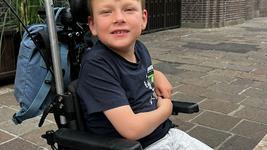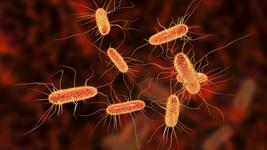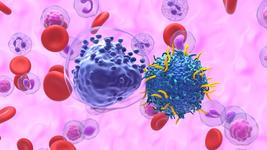CMN Weekly (8 November 2024) - Your Weekly CRISPR Medicine News
CMN Intelligence - The World’s Most Comprehensive Intelligence Platform for CRISPR-Genomic Medicine and Gene-Editing Clinical Development
Providing market intelligence, data infrastructure, analytics, and reporting services for the global gene-editing sector. Read more...
Top picks
- Patient Dies in Beam Trial of SCD Candidate; Company Cites Conditioning, by Genetic Engineering and Biotechnology News. Beam Therapeutics has acknowledged the death of a patient in a Phase 1/2 trial to evaluate the base-editing therapy candidate BEAM-101 in patients with sickle cell disease. The company has said that the death by respiratory failure, which occurred four months after BEAM-101 infusion, was likely caused by the pre-conditioning regimen that preceded dosing, and not the base-editing treatment.
- Scientists at AstraZeneca, University of Texas and LIVESTRONG Cancer Institutes (Texas) report that engineered PsCas9, which the team previously identified as a Type II-B family enzyme capable of editing the mouse liver genome upon adenoviral delivery without detectable off-targets and reduced chromosomal translocations, enables therapeutic genome editing in mouse liver when delivered via lipid nanoparticles (LNPs). They first solved the PsCas9 ribonucleoprotein structure with cryo-EM and characterised it biochemically so that they could engineer it for increased activity without compromising its precision and safety advantages. They show that a single dose of mRNA encoding ePsCas9 and its gRNA formulated with LNPs results in high levels of editing in the Pcsk9 gene in mouse liver, a clinically relevant target for hypercholesterolemia treatment. Their findings were published yesterday in Nature Communications. A summary of the work can be found on AstraZeneca's website here.
Research
- In an article published this week in Nature Biomedical Engineering, researchers in Korea report that large DNA deletions (> 100 bp) occur during DNA repair at a much lower frequency for base editors and prime editors than for Cas9 nucleases. The team analysed CRISPR-induced DNA deletions across cancer cell lines, stem cells, and T cells using CRISPR-interference screening and advanced sequencing. Cas9 double-stranded breaks caused large deletions (ranging from 0.2-17.5% in frequency) in most cell lines, with higher rates (~15%) in T cells. Further experiments with small molecule inhibitors of DNA repair pathways revealed that the deletions mainly resulted from the end resection and DNA-polymerase theta-mediated end joining pathways. While base and prime editors also produced large deletions, their frequency was 20-fold lower than with CRISPR-Cas9. The researchers highlight the importance of validating current gene-editing tools for clinical applications and present their workflow as a strategy to evaluate unintended large or small changes to DNA arising from the application of these gene editors.
- YolTech Therapeutics' co-founders, Dr. Yuxuan Wu, Dr. Zijun Wang, and Dr. Yuming Lu, in collaboration with East China Normal University, have published manuscript titled 'In vivo genome editing of human hematopoietic stem cells for treatment of blood disorders by mRNA delivery' on the preprint server BioRxiv. The study demonstrates that through a novel LNP system developed by YolTech, a single or repeated intravenous injection can effectively deliver base editor mRNA directly to bone marrow cells and haematopoietic stem cells. The method enables precise editing of essential genes and significantly activates foetal haemoglobin production, revealing strong therapeutic potential for treating monogenic blood disorders such as β-thalassemia and sickle cell disease. Read the preprint manuscript here.
- In an article published yesterday in Arteriosclerosis, Thrombosis, and Vascular Biology, scientists in Japan report a novel curative strategic for the rare clotting disease congenital purpura fulminans. The disease arises through mutations in both PROC alleles, which normally encodes a plasma anticoagulant called PC (protein C). The team generated an engineered APC (activated PC) which was either expressed in the liver of mice using an adeno-associated virus (AAV) vector or via CRISPR-Cas9 genome editing delivered in vivo via an AAV vector. As detailed in their manuscript, they showed an improvement in survival of PC-deficient mice by expressing the engineered PC via neonatal genome editing in vivo.
- Using genome-wide CRISPR-Cas9 screens, a team in the US and France have identified key host factors in African green monkey kidney cells (Vero) that enhance rotavirus reverse genetics efficacy and vaccine production. Specifically, they identified SERPINB1 and TMEM236 as key anti-viral factors against rotavirus; knocking out either of these genes increased viral titres in a rotavirus strain independent manner. Using that information, the team optimised the existing rotavirus reverse genetics systems by combining SERPINB1-knockout MA104 cells with a C3P3-G3 helper plasmid. This led to better recovery efficiency and rescued several low-titre rotavirus reporter and mutant strains that prove difficult to rescue otherwise. Furthermore, they demonstrate that TMEM236 knockout in Vero cells supported higher yields of two live-attenuated rotavirus vaccine strains than the parental cell line and represents a more robust vaccine-producing cell substrate. Their findings were published in NPJ Vaccines.
Industry and clinical
- Allogene Therapeutics has shared positive Phase 1 data demonstrating the potential of ALLO-316 in heavily pre-treated patients with advanced renal cell carcinoma. ALLO-316 is an allogeneic TALEN-edited cell therapy candidate in which healthy donor T cells are transduced with a lentivirus to express a CD70-targeting chimeric antigen receptor (CAR). According to a press release published yesterday, the data from the TRAVERSE trial show that a single infusion of ALLO-316 can yield an overall response rate of 50% and highlight the ability of Allogene's CD70 Dagger® Technology to promote robust expansion and persistence of ALLO-316 with standard lymphodepletion, validating its potential as the next generation allogeneic platform. The company also reported a manageable safety profile for ALLO-316.
- Cellectis presented multiple strategies to enhance CAR T-cell efficacy in solid tumours at the SITC Annual Meeting, which is being held in Texas this week. The results were presented in a poster entitled 'Breaking barriers in solid tumors with SMART allogeneic CAR T-cells' and the poster can be found on Cellectis' website here.
- Caszyme and Integra Therapeutics announced at BIO-Europe earlier this week that they have entered into a licensing agreement that will see Caszyme’s novel Cas12l nucleases used to develop safer and more efficient gene and cell therapies. Under the terms of the agreement, Integra Therapeutics will incorporate the genome editor Cas12l into its FiCAT 2.0 (Find and Cut-And-Transfer) gene-writing platform, following successful in vivo and ex vivo studies, which yielded highly positive results in terms of safety and functionality in human cells. Caszyme will receive milestone payments up to 40 million. euros in addition to royalties on sales. See the official press release for further details.
Third quarter 2024 industry updates
- Poseida Therapeutics. Among the updates, the company reports that cash flow is positive for the first nine months of 2024 and that $130 million has been generated in milestone and upfront payments to-date. See the full press release here.
- Iovance Therapeutics. The company is sponsoring a first in human trial, IOV-GM1-201, to investigate PD-1-inactivated tumour infiltrating lymphocyte (TIL) cell therapy (IOV-4001) in previously treated advanced melanoma and non-small-cell lung cancer, and this trial is now at the multi-centre Phase 2 efficacy stage. See the full press release here.
- Allogene Therapeutics. The report includes several updates about the company's pre-clinical and clinical programmes in cancer and autoimmune disease. See the full press release here.
- Caribou Biosciences. The company now has four clinical-stage programmes for haematologic malignancies and autoimmune diseases, with multiple clinical data reports planned for 2025. See the full press release here.
- Editas Medicine. Among the updates were that the company is on track to share additional clinical and patient reported outcomes data from 28 patients in the RUBY trial for sickle cell disease at the American Society of Hematology Annual Meeting and Exposition in December. The company expects to provide an update on its in vivo progress and pipeline development in 1Q 2025. See the full press release here.
- Vertex Pharmaceuticals. CASGEVY, which was co-developed with CRISPR Therapeutics has been approved in the U.S., Great Britain, the EU, the Kingdom of Saudi Arabia (KSA), the Kingdom of Bahrain (Bahrain), Canada and Switzerland for the treatment of both sickle cell disease and transfusion-dependent beta thalassemia, and launches are ongoing. See the full press release here.
- Cellectis. Among the updates was that trial enrolment is ongoing for two of the company's TALEN-edited therapeutic candidates UCART22 and UCART20x22, with a Phase 1 dataset and late-stage development strategy to be presented in 2025. See the full press release here.
- Intellia Therapeutics. The report includes updates about the company's in vivo CRISPR-based therapeutic candidates for transthyretin (ATTR) amyloidosis, hereditary angioedema (HAE) and alpha-1 Antitrypsin deficiency (AATD)-associated lung disease. See the full press release here.
- ProQR Therapeutics. The company's AX-0810, which is an editing oligonucleotide targeting NTCP for cholestatic diseases, is the first ProQR Axiomer™ RNA-editing programme to enter the clinic. See the full press release here.
- CRISPR Therapeutics. The company reported that 45 authorised treatment centres have been activated globally for CASGEVY and approximately 40 patients have had cells collected across all regions as of mid-October. See the full press release here.
- 2seventybio will announce its third quarter 2024 financial results on Tuesday, November 12, 2024. A conference call and webcast will be held at 8:00 a.m. ET. See the full press release here.
- Verve Therapeutics. The company reported that, as of October 29, 2024, seven participants have been dosed in the Heart-2 trial of its base-editing therapeutic candidate VERVE-102 for the treatment of familial hypercholesterolemia or premature coronary artery disease. So far, VERVE-102 has been well-tolerated, with no serious adverse events and no clinically significant laboratory abnormalities observed. The company expects to share initial data from the Heart-2 clinical trial and an update on its PCSK9 programme in the first half of 2025. See the full press release here.
Events
- CRISPR Genome Engineering and Therapy Symposium. This one-day event organised by Aarhus University Denmark and University of Copenhagen Denmark will features updates on the latest progress in CRISPR genome-editing technologies and therapeutic applications. See the programme and sign-up to attend here.
News from CRISPR Medicine News
- CRISPR gene editing can lead to integration of mitochondrial DNA (mtDNA) fragments into the nuclear genome, raising potential safety concerns in CRISPR-based therapies. Co-expression of exonucleases, however, can help mitigate the problem, a new study finds. Read more in Monday's highlight article here.
- This week, HuidaGene Therapeutics announced that the FDA had accepted its investigational new drug application for HG202, the first CRISPR-Cas13 RNA-editing therapy to enter clinical trials. HG202 is designed to treat neovascular age-related macular degeneration, which is a leading cause of blindness in people over the age of 60. Read more about this in this week's clinical trial update here.
To get more CRISPR Medicine News delivered to your inbox, sign up to the free weekly CMN Newsletter here.
Tags
ArticleMissing linksNewsCMN Weekly2seventybioAllogene Therapeutics, Inc.AstraZenecaBeam Therapeutics Inc.Caribou Biosciences, Inc.CaszymeCellectis S.A.CRISPR Therapeutics AGEditas Medicine, Inc.HuidaGene TherapeuticsIntegra TherapeuticsIntellia Therapeutics, Inc.Iovance BiotherapeuticsPoseida TherapeuticsProQR TherapeuticsVertex Pharmaceuticals, Inc.Verve Therapeutics, Inc.YolTech Therapeutics
CLINICAL TRIALS
Sponsors:
Base Therapeutics (Shanghai) Co., Ltd.
Sponsors:
Base Therapeutics (Shanghai) Co., Ltd.







